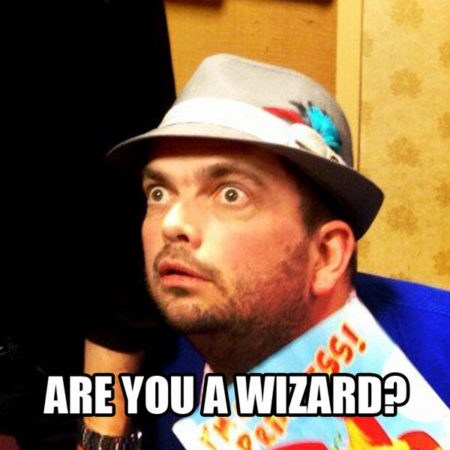|
Listen to this post:
|

I’m starting to lose patience with our present-day confused and confusing tradition of “high christology” exegesis. I think of it as a new Gnosticism – reading the New Testament gospels as if they were esoteric texts, texts written so that their main or most important meaning is hidden from plain sight, waiting to be uncovered by only the more spiritual, more insightful reader – like you, you beautiful man, you.

To mix metaphors, it’s buried pirate treasure; you must stride past the visible features of the landscape, and follow pre-drawn maps which show you where to plunge your shovel in, and hopefully hit the wooden top of a treasure-chest. Ahoy, Matey! Jesus had to mumble and gesture at his being God himself; but this was all a deliberate plan on his part, so as to be more persuasive. How clever!
Granting that Jesus would (if he believed it) have to keep such a claim on the down-low, clearly, there is no reason to think that the gospels’ authors c. 50-95 AD would have also muttered and hinted! If they thought the point of it all was that Jesus is God himself, they could have and would have clearly asserted that! But instead, they pound the table to insist that (drum-roll, please): Jesus is God’s Messiah, God’s Christ, God’s anointed one, his special, human agent, the descendant of David who will rule as a king forever, under God.
These hint-hunting readers, I think, are not respecting the New Testament gospels or their authors. They are using those texts, to be sure, but not for the intended purposes.
It seems to me that the main purpose of any New Testament gospel was this: to be read aloud in Christian home assemblies. They were meant to be heard, understood, and acted on, by all manner of believers, from the educated rich man to the illiterate slave. From the ten-year-old boy to the eighty-seven year old grandma, and everyone in between. They were not meant to be a playground for those proud of their exegetical acumen and their rare “spiritual” insights. These authors do not mutter. They do not encode. They do not sneakily gesture, when it comes to their main message, which is that Jesus really was and is God’s Messiah. To pat that message on the head and stride right past it, rushing towards the hidden gems, the sneaky indications, clever hints, and oblique suggestions that “Jesus is God”… that is a kind of learned ignorance, pointy-headed point-missing. That Jesus is God’s Messiah – this is an astounding, life-changing, mind-boggling, old-order-overturning truth, when you finally understand the implications of it. If you don’t see this as revolutionary… you may have been distracted by other ideas. This is a truth worth dying for, and worth living for.
Some failures of basic reading comprehension are due to ignorance; but such is the human condition that some failures of reading comprehension are do to misguided learning – to theory-devotion. Don’t snatch defeat from the jaws of victory, young exegete!
The way you interpret a gospel is to drive a stake into the ground when you find its thesis statement. Interpret any more difficult passages in the light of this and other clear teachings in it. In a non-esoteric book, there is no hidden main meaning. These authors shout their message from the rooftops. Thankfully, even hordes of hint-hunters have not drowned out those shouts!
Here’s your homework. Chose one of the four New Testament gospels. Does it have a thesis statement? If so, what is it? Where is it? How do you know that this is the main point?
Are you listening, Mr. Spiritual Digger? Drop the shovel, and absorb the Good News.

I think this the thesis statement from the Gospel of John:
“These things are written that you might believe that Jesus is the Christ, the Son of God, and that by believing in him you may have life in his name.” -John 20:31
Steve replies, with his usual shameful vitriol, here: https://triablogue.blogspot.com/2018/04/the-coneheads.html
And in a better humor, here, where he imagines that he’s got me cornered: https://triablogue.blogspot.com/2018/04/gored-by-horns-of-dilemma.html
He’s very quick, I note, to run quickly away from the serious historical problems for the “deity of Christ” hint-hunters. He wants to go on the attack in a different area, where he thinks he’s a strong ground: HOW DARE a biblical unitarian cite guys like Origen or Tertullian in making a point, seeing as how they were logos theorists? Well, that’s an OK question to raise, but it’s not relevant to the points I was making. I do think that unitarians need a narrative of church history that fits in both the logos theologians and their mainstream rivals – but that is a big project, and a task for another time, God willing.
I’ve never seen your use of the logos theorists or subordinationists from the 2nd-4th centuries as an irresponsibly used prop for your theological viewpoint, but rather a simple and demonstrable historical point that the Trinitarian view was not the dominant view and that whatever lofty or high view of Christ early Christians may have had (uncreated, maker of the universe, God of God, eternal) they still believed God was a certain self (the Father) and Jesus as another certain self. Nothing irresponsible, misleading or out of line there. It was actually good for me because before that as soon as I read those writers to say certain things about Christ my mind was such that I automatically conferred Trinitarianism onto those writers and without realizing it misinterpreted their words and Christological viewpoints.
I’ve been working on this for years actually Dale. Takes time, as there are a great deal of them! I’ve been creating 3 documents, one that has the main points in quotes on Christology, obedience, the resurrection, flesh/bodies, and consequences of disobedience. Am almost finished with Justin Martyr’s complete works, then on to Irenaeus. Another with a timeline of all the pre and post Nicene writers, councils, leges/degrees of the Roman emperors, etc.. Then finally a document laying out an action-response form of how Christ and the early true church acted, and how the enemy responded starting from Christ’s ministry. The Judaizers, Gnostics, and so many other camps who tried to confuse the simple message, by distorting definitions of sin and righteousness, or distorting who Christ was…all so Satan could prevent any others from following in Christ’s footsteps. Will share when I finish!
You’re right, David. But a far deeper factor, I think, is just the social pressure of that set. It is unspeakably uncool to be a unitarian there. A narrative of continuous (1st c. on) “trinitarian” theology rules unchallenged, unquestioned. They have rallied the troops, I surmise, against “liberals.” I think that too, there is fear about the strength of their case. They are aware that historically-oriented scholars, correctly, don’t want to read 4th c. ideas into 1st c. texts. But they are unwilling, it seems to me, to wrestle with such, they think theologically less exciting, readings in exegetical and doctrinal contexts.
The ‘Jesus is God’ academics have to stay in the publishing game, to have their own ‘find’, something they can stick their name to, don’t they?
So, it is not good enough to repeat the clear apostolic message of who Jesus is.
That would not make a journal article, never mind a whole book!
Hence all this this digging for buried treasure …
Yes, but all these ‘Jesus is God’ scholars have to stay in the publishing game, to have their own ‘find’, something they can stick their name to, don’t they?
So, it is not good enough to repeat the clear apostolic message of who Jesus is.
That would not make a journal article, never mind a whole book!
Hence all this this clever digging for buried treasure …
Amen! Preach it brother. I share your frustration. A good case in point is the paper put out by the Bible Faculty of the Master’s University extension program in Israel, in response to Prof. Bill Schlegel’s termination for coming out as a believer in the unitary God of the man Jesus the Messiah. If you have not heard his testimony go to Restitutio to hear Sean Finnegan’s interview with the Prof. Anyway, this 22 page document is chock full of supposed scriptural hints of the trinity and the deity of Jesus. I was astounded at this sophomoric presentation by, I presume, bible scholars. Many of the scriptural ‘proofs’ are either shallow or obtuse; some of the data is simply incorrect. Perhaps they had to throw something together quickly to protect the students from being deceived by the Prof. and this is what accounts for such a puerile defense of the trinity doctrine. For any one interesting in reading this paper you can find the link on restitutio.org, under interview 31. But if you do you may want to wear a helmut or something so you do not pull all of your hair out while reading it. Love you Dale, keep up the good work.
Yes, I did hear that episode – it was a good one! I didn’t notice that their official response was available too. Thanks for that! http://restitutio.org/2018/04/05/interview-31-masters-seminary-prof-finds-son-of-god-loses-job-bill-schlegel/
Comments are closed.